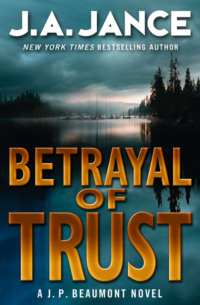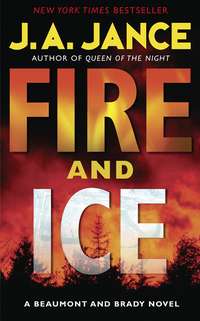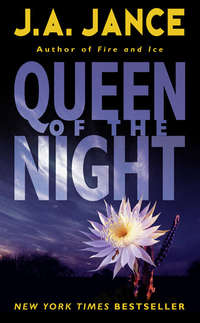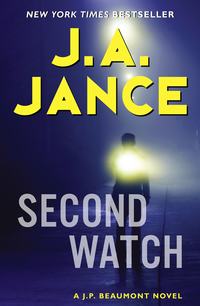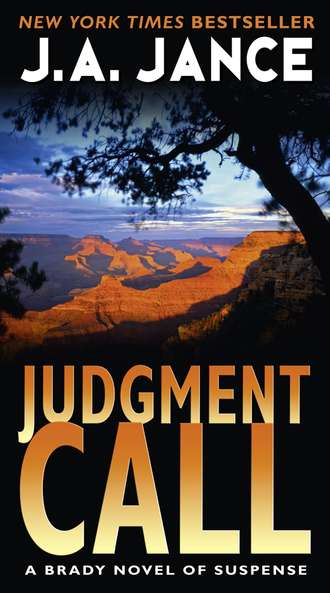
Полная версия
Judgment Call
The implications in her mother’s statement were quite clear, as in, your daughter’s a fifteen-year-old rodeo queen. Mine was an unmarried, pregnant seventeen-year-old. Which do you prefer?
Guilty as charged, and that was pretty much the end of Joanna’s taking issue with the rodeo queen situation.
“Hey,” Joanna said as Jenny dropped her backpack on the floorboard, scrambled into the passenger seat, and fastened her seat belt. “How are things?”
“Good,” Jenny said.
“And work?”
“Okay.”
The older Jenny got the harder it became to get her to reply to any given question with something other than a single word.
“School?” Joanna ventured.
“School was weird.”
That was more than a one-word answer. It was long on worrisome implications but short on meaning. “What do you mean, weird?”
“When the buses were leaving this afternoon, the parking lot was full of cops.”
“Really?” Joanna asked. “How come? Did something happen? Was the school on lockdown?”
And if it was, she asked herself, why didn’t I know about it?
“Ms. Highsmith is missing or something.”
Debra Highsmith, the high school principal, was someone with whom Joanna had crossed swords several times, most notably when Joanna had been invited to speak at career day and was notified that, due to the school’s strict “zero tolerance of weapons” policy, she would need to leave both her Glock and her Taser at home. Joanna had gone to the school board and had succeeded in obtaining a waiver of that policy for trained police officers.
“Ms. Highsmith is missing?” Joanna asked.
Jenny shrugged and nodded. “She wasn’t at school this morning. When I took the homeroom attendance sheets down to the office, I heard Mrs. Holder talking to Mr. Howard about it—that Ms. Highsmith hadn’t come in and that it was odd that she hadn’t called to let anyone know. After that, I didn’t hear anything else until we were going out to the buses. That’s when all the cop cars showed up.”
Wondering what had happened but not wanting to grill her daughter, Joanna changed the subject. “How was driver’s ed?”
“Mr. Forte is having a hard time finding a stick-shift vehicle for me to practice on.”
Jenny had won her local rodeo crown, but there were other titles to conquer. If she intended to run for or win any of those, both Jenny and her horse, Kiddo, needed to attend the far-flung competitions, a reality which had underscored the fact that they needed suitable horse-hauling transportation.
With that in mind, Butch had gone on Craigslist and found a bargain-basement used dual-cab Toyota Tundra pickup complete with a heavy-duty towing package. It was a good enough deal that he had snapped it up on the spot. The only sticking point had to do with the fact that the Tundra came with a manual transmission, and all the vehicles used for Bisbee High School’s driver’s ed classes were automatics.
“If Butch finishes going over his copyediting, maybe he can take you out for a spin tomorrow since you don’t have school.”
“I’m working tomorrow,” Jenny said. “We’re planning to do the driving thing on Saturday.”
Faced with severe budget shortfalls, the school district had switched to four-day weeks, leaving the schools shuttered on Fridays and weekends. It cut down on utilities and transportation costs, but it left working parents scrambling for something to do with their kids each Friday when school was out and the parents still had to work. Joanna was fortunate. On those days when extra kids had to be accommodated at the church-run preschool and day care, Dennis was usually able to be at home with Butch. When Butch wasn’t available, they could call on Carol Sunderson, their part-time housekeeper, and her two grandsons.
Joanna pulled over to the curb, and Jenny dashed inside to get her brother. While she was gone, Joanna called Alvin Bernard, Bisbee’s chief of police. She was still on hold when Jenny came out with Dennis in tow. As Jenny strapped her little brother into the car seat that was a permanent fixture in Joanna’s patrol car, Alvin finally came on the line.
“Sorry to make you wait so long,” Alvin said. “I’m busier than a one-legged man at a butt-kicking contest.”
Like Arlee Jones, Alvin Bernard was a good old boy of a certain vintage. When Joanna was first elected sheriff, Alvin hadn’t exactly welcomed her to the local law enforcement community with open arms. Over time, however, they had buried the hatchet and learned to work together.
“What’s the deal with Debra Highsmith?” Joanna asked.
“Sorry, I suppose I should have given you a call about this,” Alvin said, “but it’s been crazy. When she didn’t show up at school this morning and didn’t call in, we sent out officers to do a welfare check. They found nothing—zip. Her purse was there, but her cell phone, car keys, and car are missing. And there’s a pair of shoes on the floor beside the door, as though she kicked them off as soon as she came inside. There was no sign of forced entry. No sign of a struggle. It’s as though she went home after school yesterday afternoon and then both she and her vehicle simply vanished into thin air. We’ve checked with all the neighbors. No one admits to having seen or heard anything out of the ordinary with her or with her dog.”
“She’s got a dog?” Joanna asked.
“A big Doberman,” Alvin replied. “The neighbors tell us she’s only had him a couple of weeks, but he’s gone, too. Dog dishes and doggy doo-doo are everywhere. No dog, but with the car and keys gone, it’s unlikely that the woman’s on foot, and chances are the dog is with her. All the same, we’re searching the neighborhood in case she went out for a walk with the dog. It could be she suffered some kind of medical emergency and ended up in a ditch where no one can see her. Or else she’s in a hospital. I’ve got someone calling hospitals in the area just in case.”
“Where does she live?”
“Out in San Jose Estates, so there’s some distance between the houses. I’ve had uniforms out canvassing up and down the street. No one remembers seeing her out and about on foot or otherwise. However, we did find something pretty interesting.”
By then Joanna had put the Yukon in gear and was driving down Tombstone Canyon with Dennis jabbering happily in the backseat. His brand of nonstop talk was pretty much lost on everyone but his sister, who seemed to understand his every word. Neither of them appeared to be paying the slightest attention to Joanna’s side of the conversation.
“What’s that?”
“Remember when she gave you all that crap over her zero tolerance of weapons at school?”
“Yes,” Joanna said. “I remember it well. Why?”
“I knew she had applied for and received a concealed-weapons permit. After her giving you so much grief about bringing a weapon to school, I guess I never thought she’d go the distance, but she did. Guess what we found in her purse? One of those two-inch Judge Public Defenders loaded with five four-ten shotgun shells.”
A Public Defender loaded with shotgun shells certainly wouldn’t have been Joanna’s first choice of weapon. It was designed to do serious damage, and it wasn’t something that lent itself to harmless practice shooting on a firing range.
“You’ve got to be kidding. She had one of those in her purse?”
“Yes, ma’am,” Alvin said. “Big as life. Considering her very public attitude toward firearms, I thought you’d get a kick out of that.”
As far as Joanna was concerned, “kick” wasn’t exactly the word that came to mind.
“Sounds like she was worried about something,” Joanna said. “You don’t go around with a handgun in your purse, especially one loaded with shotgun shells, if you haven’t a care in the world.”
“Who has a gun in her purse?” Jenny asked.
If Jenny was tuning in, that meant that Joanna’s part of the conversation was over. “Keep me posted if you learn anything more,” she said. “I need to get my kids home to dinner.”
Alvin took the hint. “Okay,” he said. “Talk to you later.”
“You still didn’t say whose gun,” Jenny objected.
“Police business,” Joanna said.
In her family those two words carried a lot of weight, just as they had years earlier when her father had used them with Joanna. It was a conversational Do Not Cross line that was every bit as effective as a strip of yellow crime scene tape. It meant the subject was off-limits and any further discussion forbidden.
“I’m not a baby, you know,” Jenny complained.
“No, you’re not,” Joanna agreed. “Which means that you understand I’m not allowed to discuss an ongoing investigation with anyone.”
“I’ll bet you’ll discuss it with Dad,” Jenny said.
Joanna’s heart did a tiny flip. She and Butch Dixon had been married for years, but this was the first time she ever remembered hearing Jenny refer to him as “Dad” rather than “Butch.” Although the whole idea gladdened her heart, she didn’t want to screw it up by overreacting. Besides, there was always a chance that, in this case, Jenny was deliberately zinging her mother.
“What do you want to bet?” Joanna asked.
“Never mind,” Jenny said. “I didn’t want to know anyway.”
With that Jenny lapsed into a brooding silence that lasted the rest of the way home. Joanna tried not to take any of it too seriously. When it came to parenting teenagers, bouts of surly silence were par for the course. When they got to the house, Jenny grabbed her backpack, darted out of the car, and slammed her way into her bedroom before Joanna managed to drag Dennis and all his toddler gear into the house.
“What’s up with Jenny?” Butch asked.
From the complex aroma in the kitchen, Joanna could tell that dinner was all but cooked. Butch was busy setting the table.
“Nothing five years won’t fix,” Joanna said with a laugh.
“Oh, that,” Butch said, giving first her and then Dennis quick pecks on the cheek as they walked by. “Wash your hands, little man,” Butch added to Dennis. “Dinner’s almost ready.”

WHEN JOANNA Brady was first elected sheriff, she had dutifully followed in the footsteps of her father, who had once held the same position. Her own election had come about in the aftermath of the shooting death of her first husband, Andrew Roy Brady, who had been running for the office of sheriff when he was killed by a drug kingpin’s hit man. Friends of Andy’s had prevailed on Joanna to run in his stead. When she was elected, everyone had more or less written her off as a figurehead, sheriff in name only, but she had rejected those assumptions, making the effort to learn the job by sending herself off to the police academy.
In the process Joanna had surprised both her supporters and her critics; she had also surprised herself. She soon discovered that law enforcement fever ran in her veins. Being sheriff wasn’t just a job, it was her passion. Like her father, D. H. Lathrop, before her, she lived and breathed the job, working too many hours and bringing home mountains of paperwork to do in the evening at the dining room table. Before long she was living to work instead of working to live. Big difference.
She hadn’t anticipated falling in love again, and the idea of having another baby had never crossed her mind. Both of those had come as complete surprises. When first Butch Dixon and later Dennis came into her life, those two additions had caused a sudden reordering of Joanna’s priorities. Yes, her job was still important to her; yes, she still loved it; but now she made a conscious effort every day to maintain a balance between home and work.
A big part of achieving that balance had to do with the fact that, in their two-career family, Butch and Joanna were beyond lucky in having good help. A year or so earlier, Carol Sunderson and the two grandsons she was raising had been left homeless when an electrical fire had swept through their mobile home, taking the life of her invalid husband. At the time, Joanna’s old house on High Lonesome Ranch had been rented out and was left in terrible shape by departing tenants who had torn the place apart before they skipped town without paying the rent. In a stroke of enlightened self-interest, after fixing it up Joanna and Butch had offered the house to Carol at a reasonable rent while at the same time hiring her as part-time household help.
It had turned out to be a match made in heaven. Having Carol to backstop Butch with cooking, housework, and child care gave him more time to devote to his writing. Now that his third crime novel was due to be published in several months’ time, Carol’s capable presence made it feasible for him to go on a book tour—which his publisher definitely wanted him to do.
When dinner was over and the dishes done, Butch retreated to the office to finish reviewing his copyediting and Jenny shut herself up in her room to do homework, leaving Joanna to spend some one-on-one time with Dennis. They went out into the yard and turned on the yard light. Long after sunset, she and Dennis continued playing a rousing game of fetch with their two remaining dogs—Lucky, a deaf black Lab, and Lady, the shy Australian shepherd. The dogs didn’t tire of fetching and Dennis didn’t tire of throwing.
Jenny had taught Lucky to respond to sign language, and he was more her dog than he was anyone else’s. When they had first rescued Lady, Joanna was the only member of the family the dog would tolerate. Now, to everyone’s surprise, she had switched loyalties by taking Dennis under her wing as though he was her special charge. When Dennis was home, inside or outside, Lady literally dogged his heels wherever he went. She had even abandoned her special spot on Joanna’s side of the bed, choosing instead to sleep on the rug next to the trundle bed in Dennis’s room.
It was fully dark before they finally went inside. Once Dennis was bathed and in bed, Joanna settled down with a book in the family room where the model trains on Butch’s train track were, for once, mercifully still. She was reading quietly when, well after nine, Butch finally emerged from his office.
“Done?” she inquired.
Nodding, he picked up the remote control and switched on the TV. “Mind if I turn on the news?”
“Help yourself.”
“Thanks for chasing after Denny tonight,” he said. “The manuscript needs to go out by FedEx tomorrow so it can be in New York on Monday. I needed to finish it tonight, especially since both kids will be home from school tomorrow. When they’re here, it’s almost impossible to work. Besides, Jenny and I have to schedule some stick-shift driving lessons over the weekend.”
“You’re fearless,” Joanna said. “By the way, Jenny gave you a promotion this afternoon. She actually called you Dad.”
“That is a promotion,” Butch agreed, “but why was she so grumpy at dinner? She barely said a word and seemed really out of sorts.”
“We had a disagreement coming home in the car,” Joanna said. “She overheard part of a conversation about a current investigation, and she was put out that I wouldn’t spill the beans about what was going on.”
“What investigation?” Butch asked.
The ten o’clock news was just coming on with a teaser about a missing high school principal. “If you watch the news,” Joanna said, “you’ll know exactly which investigation. You’ll also understand why I couldn’t discuss it with her.”
As expected, the story about the missing school principal was right there at the top of the news broadcast.
“Tonight, authorities in Bisbee are searching for Bisbee High School’s principal, Debra Highsmith, who went missing sometime last night,” the news anchor said. “When Ms. Highsmith failed to show up at work today, police officers were dispatched to her home to do a welfare check, but failed to find her. Our reporter Toni Avila is on the scene. What can you tell us, Toni?”
“According to a spokesman for the Bisbee Police Department, when officers were dispatched to Ms. Highsmith’s residence in Bisbee’s San Jose neighborhood, they found no evidence of a struggle or of foul play. Her vehicle, a white 2006 VW Passat with Arizona plate number AZU-657, is also missing. At this point, officers assisted by K-9 teams are doing a thorough search of the nearby area. They’re also checking with area hospitals to see if Ms. Highsmith may have suffered some kind of medical emergency. Anyone with knowledge of her whereabouts is urged to contact the Bisbee Police Department.”
“Let’s hope they’re able to find her,” the anchor said, “but it turns out Ms. Highsmith’s disappearance isn’t the only news from Bisbee today. What else is going on?”
“As many of our viewers realize, we’ve been doing daily coverage of the trial of Alma DeLong, a Tucson-area businesswoman who owned Caring Friends, a now-defunct organization that operated inpatient care for Alzheimer’s patients all over southern Arizona. Second-degree homicide charges were lodged against Ms. DeLong in the deaths of three people who died while being housed at the Caring Friends Palominas facility. After a weeklong trial in Cochise County Superior Court and after almost two days of deliberation, the jury returned their verdict late this afternoon. Ms. DeLong was found guilty on all three homicide charges and on the charge of resisting arrest. She was found innocent on a related charge of assaulting a police officer.
“Here’s what the son of one of the victims had to say after the verdict was rendered.”
The screen switched over to a view of Bobby Fletcher standing outside the courtroom door, flanked on one side by Arlee Jones and on the other by Joanna.
“Hey, why didn’t you tell us you were going to be on TV tonight?” Butch wanted to know.
“Because I didn’t know for sure that I was. Besides, it was a walk-on appearance only. No spoken lines.”
“And the case Jenny’s annoyed about is the one involving the missing principal?”
Joanna nodded. “That would be it, since Debra Highsmith happens to be Jenny’s principal.”
“Was that a live feed just now?” Butch asked.
“I think so. Why?”
“That means they still haven’t found her.”
“Evidently.”
“If it’s not your case, what’s the problem with talking to Jenny about it?”
“What if she ended up carrying tales to school about it? That could cause trouble down the road, especially if what happened to Debra Highsmith turns out to be something more serious than her just going out for a solitary evening drive.”
“The reporter made it sound like she might have landed in a hospital somewhere.”
“Let’s hope that’s all it is,” Joanna said. “Debra Highsmith has never been one of my favorite people, but I’d hate to see something bad happen to her.”
A few minutes later, when the weather came on, Butch switched off the television set. “This is Arizona. The weather tomorrow is going to be just like the weather today. What say we go to bed?”
They did. Their bedroom door had a lock on it, and they made good use of same. Afterward, Joanna slept like a baby. When the rooster-crowing ring of her cell phone jarred her awake the next morning, it was full daylight and the clock on the nightstand said 6:47. When she saw Jenny’s number on the caller ID readout, Joanna assumed Butch had forgotten to unlock the bedroom door before they went to sleep.
“Mom, Mom,” Jenny sobbed into the phone. “You have to come quick. I just found Ms. Highsmith.”
Joanna sat up in bed, trying to get her head around what was going on. “You found her here?” she demanded. “At the house?”
“I’m not at the house!” Jenny replied indignantly. “I woke up early and decided to take Kiddo out for a ride before breakfast. I found Ms. Highsmith here, beside the road.”
“That’s a relief,” Joanna said. “Is she all right?”
“She’s not all right!” Jenny declared. “She’s dead. I think someone shot her.”
By the time Jenny finished that last sentence, Joanna was out of bed and scrambling into her clothes.
“You’re sure it’s her?” Joanna demanded.
“She’s still wearing her name badge. I can read, you know.”
“Where are you?” Joanna asked urgently, switching her phone to speaker. “Tell me exactly.”
“When Kiddo and I go out for an early-morning gallop, we always head up High Lonesome. We’re just this side of the third wash north of our house.”
High Lonesome Road runs north and south along the base of the Mule Mountains. On those rare occasions when it rains, rushing water comes flooding down out of the mountains to drain into the Sulphur Springs Valley. Wash beds that are only a few feet apart up on the mountainsides spread out like the spokes of a wheel at lower elevations. During those periodic deluges the gullies run wall to wall with roiling water, sometimes ten to fifteen feet deep. Once the floods are over and the water drains away, the sandy beds are often left littered with man-size boulders.
Faced with budget cuts, the county had finally quit blading the rocks out of the way, which left High Lonesome Road north of the High Lonesome Ranch impassable for through traffic. The washouts may have been hazardous to most vehicular traffic, but Joanna realized they presented no barrier for someone traveling on a speeding quarter horse.
“I’m getting dressed,” Joanna said. “I’ll be there as soon as I can. You’re sure she’s dead?”
“Yes, Mom,” Jenny said. “I’m sure.”
“Don’t touch anything,” Joanna cautioned. “Especially don’t touch the body.”
Jenny’s earlier panic morphed into indignation. “Mom,” she said, “do you think I’m stupid or something? Besides, why would I touch it? It’s gross. There are flies and bugs. It smells awful.”
“All right,” Joanna said. “How’s the road?”
“Pretty bad. Her car is stuck in the first wash. At least I’m pretty sure it’s Ms. Highsmith’s car, and it’s blocking the road.”
“Don’t worry,” Joanna said. “I have four-wheel drive. That shouldn’t be a problem, but if it is and I can’t make it to where you are in the Yukon, I may have to walk. That could take a while.”
By then Joanna was on her way through the kitchen where Butch was overseeing Dennis’s breakfast.
“What’s up?” Butch asked as Joanna hurried past him.
“Jenny and Kiddo went out for a ride and found a body,” Joanna said. “I’ve got to go.”
“A body? Whose? Where?”
“She says it looks like Debra Highsmith. They’re up the road,” Joanna said. “Up High Lonesome.”
“Do you want me to come with you?”
“No,” Joanna said. “You stay with Dennis. I’ll get some deputies out here. We’ll be fine.”
In the garage, Joanna put the Yukon in gear, backed out, and sped away up the driveway. At first she intended to get on the radio and call out the troops. Ultimately she changed her mind. She wanted to be on the scene in person and see the lay of the land before she ran up the flag for help. With Jenny involved, she wanted to have a clear idea of the challenges her people and the medical examiner’s crew would encounter in trying to reach the body.
As she approached the first wash, the road narrowed from two lanes to one. As she crested the hill, the Passat was completely hidden from view until she started down into the dip. The moment she saw the stranded vehicle, Joanna understood that Jenny was right. The vehicle had plowed into the sand and then had turned sideways where it had high-centered on an invisible boulder hidden under a thin layer of sand. The driver’s fruitless attempt to free it had torn up the surrounding sand, making a bad situation worse. Stopping short of the wash, Joanna climbed out of her SUV to survey the scene. She realized that if she attempted to drive around the Passat at low speed, even with four-wheel drive, there was a good chance the Yukon would end up stuck as well.
“I told you,” Jenny said.
Joanna looked up in time to see Jenny pull Kiddo out of a trot on the far side of the wash. “Come on,” she said. “We can ride double. It’ll be faster than walking.”
Avoiding the churned-up sand, Joanna crossed the wash. With Jenny’s help, Joanna managed to get a foot in the stirrup and clamber up onto Kiddo’s back, where she clung to Jenny’s waist. As soon as Joanna was onboard, Jenny urged Kiddo into a fast canter. Jenny was a capable rider; Joanna was not. As Kiddo raced along in the rocky roadway, Joanna clung to her daughter for dear life.


